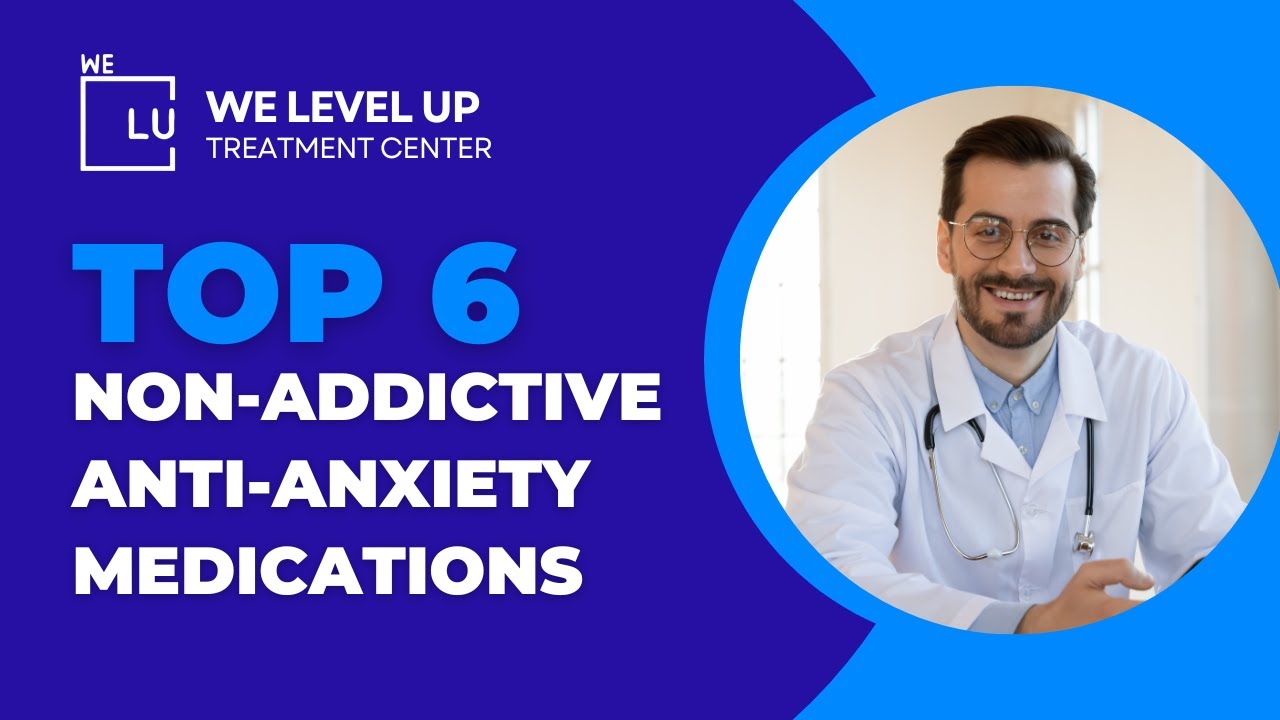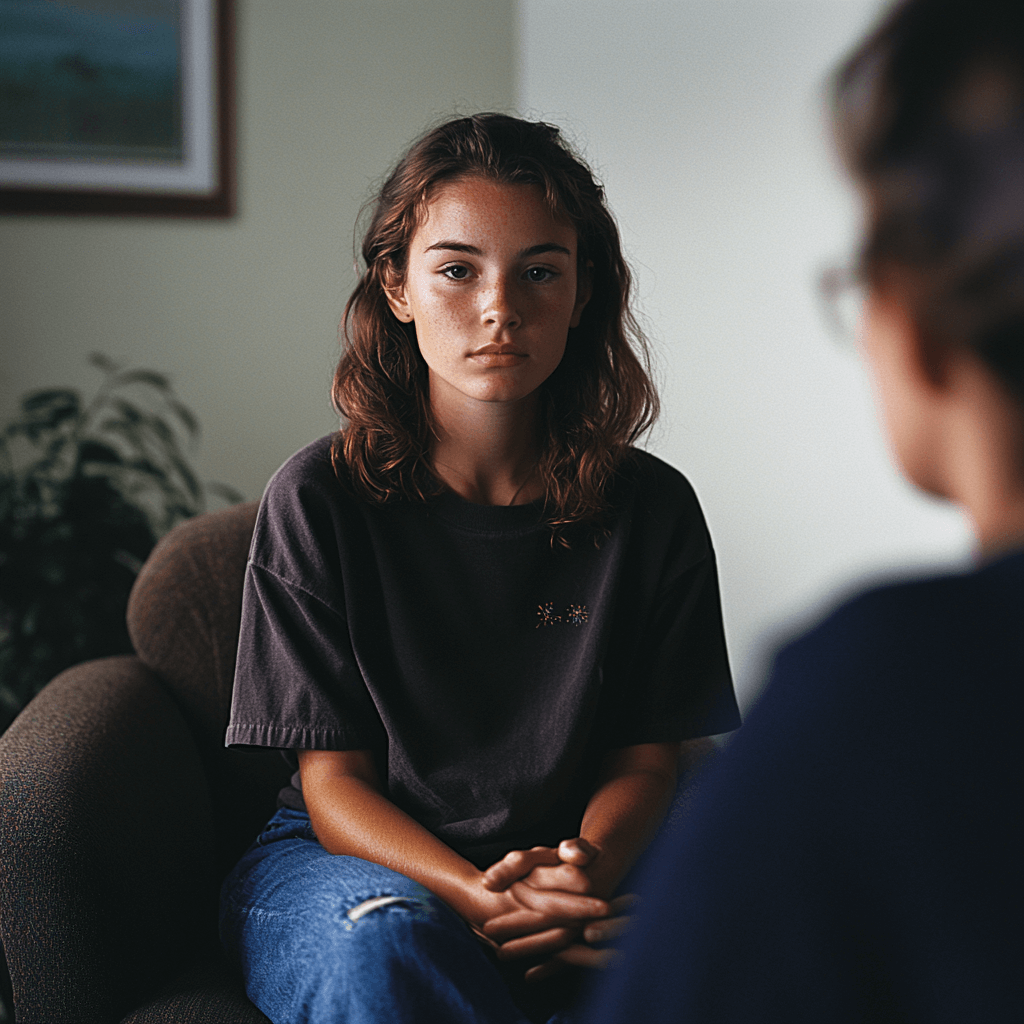Beta blockers for anxiety can be beneficial even if the FDA hasn’t formally authorized them for the treatment of anxiety disorders. If other anxiety medications aren’t suitable, some doctors could use off-label beta blockers. However, using these medications without a doctor’s prescription is dangerous and can have adverse side effects. Treatment from a specialist is also critical for disorders including panic disorder, phobias, and PTSD.
An example of a beta blocker that is commonly prescribed for anxiety or stage fright is propranolol; it may relieve some symptoms of anxiety, such as tachycardia, sweating, and general tension. Also, certain beta blockers are explicitly used in inpatient units rather than for outpatient prescriptions. A well-known example is esmolol, typically used in the intensive care unit or a cardiac inpatient unit. [1]
Are Beta Blockers Addictive?
Substance use disorders are frequently comorbid with anxiety disorders. General population studies provide strong evidence of the frequency of the association for the most used substances: tobacco, alcohol, cannabis, and, to a lesser extent, sedatives, opiates, and cocaine. For substances that are less commonly used in the general population, the frequency of the co-occurrence can more precisely be studied in clinical samples.
Though the mainstay of medication treatment of anxiety disorders involves monoaminergic psychotropics, anxiolytics such as beta-blockers and benzodiazepines are also prescribed, including over-the-counter (OTC) meds. There is a shortage of evidence regarding the abuse of beta-blockers and its consequences, probably because they are not considered drugs with abuse potential. However, there are cases of propranolol abuse in patients with generalized anxiety disorder. [2]
Anxiety attacks are strongly connected with instances of substance abuse. Treating dual-diagnosis clients struggling with addiction and anxiety is a crucial part of the We Level Up Texas inpatient treatment. Reclaim your life today! Call us 24/7 for a free consultation.
Do Beta Blockers Help with Anxiety?
Beta-blockers, also known as beta-adrenoceptor antagonists, block the effects of adrenaline on beta receptors. This effect can also lessen anxiety symptoms. They reduce blood pressure, control heart rate, and are frequently used for cardiac diseases. They alleviate symptoms by changing the way the body reacts to anxiety.
Benefits of Beta Blockers for Anxiety
- Reducing adrenaline effects.
- Easing anxiety symptoms.
- Lowering blood pressure.
- Regulating heart rate.
- Potential treatment for PTSD and phobias (pending more research).
Beta Blockers for Anxiety Effectiveness
While the FDA hasn’t officially approved beta-blockers for anxiety, they can effectively reduce anxiety’s physical effects, like a fast heartbeat and tremors. However, they may not be as effective for psychological symptoms.
Beta-blockers provide a quick resort for anxiety relief, especially for short-term and acute situations. They can lower blood pressure and heart rate, offering physical symptom relief. They may be a suitable option for those who can’t tolerate the side effects of other anti-anxiety meds or have heart-related concerns. Additionally, beta-blockers can boost confidence by reducing tremors during public speaking. While other drugs like benzodiazepines and antidepressants treat anxiety, beta-blockers offer a faster solution without the risk of dependence or delayed onset.
Types of Beta Blockers
Many kinds of beta-blockers are available in the US. All beta-blockers work by altering the response of beta receptors to epinephrine. The two most popular distinct types are:
- Nonselective beta-blockers. These medications block epinephrine from binding to beta receptors throughout the body (beta-1 and beta-2 adrenoceptors).
- Selective beta-blockers. These drugs primarily prevent epinephrine from binding to beta receptors in the heart. They selectively target beta-1 receptors. At higher doses, they may become less selective and target beta-2 receptors.
Propranolol and other beta-blockers are thought to be non-addictive drugs, in contrast to other anxiety treatments. On the other hand, propranolol’s soothing effects might grow on you. You could be tempted to use propranolol to relieve your symptoms while you’re feeling stressed. The result might be drug dependency.
If you’re concerned that you could get reliant on your medicine, discuss this with your doctor. They could provide substitutes that suit you better.

Skip To:
Learn More:
- Does Alcohol Help Anxiety?
- Dangers of Mixing Anxiety Medication and Alcohol
- What is Sleep Anxiety?
- What to Know About Valium for Anxiety
- Alcohol and Anxiety Co-Occurring Disorders
- Separation Anxiety in Adults, Causes, Symptoms, and Treatment
- How to Calm Anxiety Attacks? Symptoms, Causes, and Treatment
- Mental Health Assessment for Mental Illness Treatment
- Mental Health Treatment. Warning Signs, Types of Treatment, Therapies, Medications, and How To Get Help.
- Dual Diagnosis Treatment
If you’re struggling with anxiety and substance abuse, get resources about treatment counseling that works. Start getting support with a free call to our mental health and addiction hotline.
Get Help. Get Better. Get Your Life Back.
Searching for Accredited Drug and Alcohol Rehab Centers Near You? We Level Up Texas Is Ready To Help!
Even if you have failed previously and relapsed, or are in the middle of a difficult crisis, we stand ready to support you. Our trusted behavioral health specialists will not give up on you. When you feel ready or just want someone to speak to about therapy alternatives to change your life call us. Even if we cannot assist you, we will lead you to wherever you can get support. There is no obligation. Call our network hotline today.
FREE Addiction Hotline – Call 24/7Side Effects of Beta Blockers for Anxiety
Some patients report insomnia, sleep changes, and nightmares while using beta-blockers. This effect is more pronounced with beta-blockers that cross the blood-brain barrier. Some patients can experience fatigue or weight gain while on beta blockers. Managing these adverse events involves safely discontinuing the medication.
When a patient is admitted to an inpatient ward, monitoring the clinical effects and potential adverse effects is an interprofessional task. This is crucial because excessive medication levels can have severe or fatal consequences.
Other common side effects of beta blockers for anxiety are:
- Fatigue.
- Dizziness.
- Cold hands or feet.
- Upset stomach or nausea.
- Difficulty sleeping.
- Erectile dysfunction.
- Depression (rare).
- Masking symptoms of low blood sugar.
- Potential for worsening of asthma symptoms (in some cases).
How Long Do Beta Blockers Take to Work for Anxiety?
The best time to detect the effects is one to four hours after taking a dosage.
List of Natural Beta Blockers for Anxiety
In contrast to anxiolytic drugs, some herbs and nutrients can stimulate neurotransmitter synthesis and more naturally affect and even adjust brain chemistry without many of the side effects experienced with drugs.
Natural beta blockers include:
- Foods rich in potassium (e.g., bananas, oranges).
- Omega-3 fatty acids (found in fish and flaxseeds).
- Magnesium-rich foods (e.g., spinach, almonds).
- Herbs like valerian root and passionflower.
- Deep-breathing exercises.
- Yoga and meditation.
- Green tea.
- Dark chocolate.
- Hawthorn extract.
- Rhodiola rosea.
Over-the-Counter Beta Blockers for Anxiety
Beta-blockers are prescription-only medicines. This means they can only be prescribed by a doctor or a qualified healthcare professional.

Get Your Life Back
Find Hope & Recovery. Get Safe Comfortable Detox, Addiction Rehab & Dual Diagnosis High-Quality Care.
FREE Addiction Hotline – Call 24/7Treating Both Anxiety and Addiction
Anxiety, addiction, and other illnesses often co-occur. For example, illicit drug abuse and even overconsumption of caffeine or lifestyle choices can lead to anxiety. Hospitalization due to a diagnosis of a severe illness such as HIV/AIDS and cancer can increase the risk for anxiety. Moreover, often, the stress and discomfort associated with the treatments that go along with these illnesses increase the risk for anxiety. Anxiety is also closely related to other mental health conditions, especially depression.
The root cause of substance abuse or alcoholism may have come about as a response to a mental health problem, such as anxiety. Without accurate diagnosis, many seek to control their conditions by self-medicating, using alcohol or tranquilizers for anxiety, amphetamines or cocaine for depression, etc.—and the short-term comfort or distraction makes the experiment look like a recovery. Self-medication can be repetitive, and the repetition can then lead to dependency, and an addiction can develop.
Furthermore, an individual relatively free from psychiatric illnesses can experiment with drugs and continue past “recreational use” to drug dependence. Then, a secondary mental disorder, such as anxiety, can emerge.
If you’re seeking assistance with your rehab journey, reach out to a We Level Up Texas treatment professional today—your call is free and confidential.
First-Class Facilities & Amenities
World-Class High-Quality Addiction & Mental Health Rehabilitation Treatment
Rehab Centers TourRenowned Addiction Centers. Serene Private Facilities. Inpatient Rehab Programs Vary.
FREE Addiction Hotline – Call 24/7Proven recovery success experience, backed by a Team with History of:
15+
Years of Unified Experience
100s
5-Star Reviews Across Our Centers
10K
Recovery Success Stories Across Our Network
- Low Patient to Therapist Ratio
- Onsite Medical Detox Center
- Comprehensive Dual-Diagnosis Treatment
- Complimentary Family & Alumni Programs
- Coaching, Recovery & Personal Development Events
We Level Up Texas Dual Diagnosis Rehab Center for Anxiety and Addiction
The We Level Up Texas rehab professionals believe that if the patient can determine the underlying problem and treat it simultaneously with their addiction, the patient’s chances of a successful, relapse-free healing are much improved. Once we can recognize and adequately start treating the co-occurring issues with the dependency on alcohol or other drugs, individuals will be closer to long-term sobriety.
At We Level Up Texas rehab center, we do not believe that long-term healing comes in a one-size-fits-all program. Upon arrival at our dual diagnosis treatment center, each client will undergo a comprehensive physical and psychological assessment with our physicians, mental health specialists, health advisers, and nutritionists. Together, we will determine the client’s underlying issues, including anxiety disorders, so that we can plan an individualized approach and, when applicable, provide integrated dual diagnosis treatment. The symptoms of the multiple disorders that can occur alongside addiction can present complex and similar symptoms. Accurate diagnosis requires a highly trained professional team with years of experience.

Get a free rehab insurance check without any obligation. The result can help you explore several treatment options.
Top 6 Non-Addictive Anti-Anxiety Medications, Side Effects, and Things You Should Know | Informative Video
Start a New Life
Begin with a free call to an addiction & behavioral health treatment advisor. Learn more about our dual-diagnosis programs. The We Level Up treatment center network delivers recovery programs that vary by each treatment facility. Call to learn more.
- Personalized Care
- Caring Accountable Staff
- World-class Amenities
- Licensed & Accredited
- Renowned w/ 100s 5-Star Reviews
We’ll Call You
Search We Level Up Texas Beta Blockers for Anxiety, Detox Topics, and Resources
Sources
- Farzam K, Jan A. Beta Blockers. [Updated 2023 Aug 22]. In: StatPearls [Internet]. Treasure Island (FL): StatPearls Publishing; 2023 Jan-. Available from: https://www.ncbi.nlm.nih.gov/books/NBK532906/
- Chandrasekaran V, Subramanian K, Muthuramalingam A. Propranolol Abuse: A Case Report on the Harmful Consequence of Over-the-Counter Medications. Indian J Psychol Med. 2020 Jul 14;42(4):394-396. Doi: 10.1177/0253717620936985. PMID: 33402802; PMCID: PMC7746912. Research related to beta blockers anxiety meds; natural beta blockers anxiety alternatives; over the counter beta blockers for anxiety.
- The Key Substance Use and Mental Health Indicators in the United States: Results from the 2021 National Survey on Drug Use and Health – Substance Abuse and Mental Health Services Administration (SAMHSA)
- Substance Use and Co-Occurring Mental Disorders – National Institute of Mental Health (NIMH)
- Can Using Drugs Help Me Deal With Anxiety and Depression? – National Institute on Drug Abuse (NIDA)
- Woody G. The Challenge of Dual Diagnosis. Alcohol Health Res World. 1996;20(2):76-80. PMID: 31798155; PMCID: PMC6876494. https://www.ncbi.nlm.nih.gov/pmc/articles/PMC6876494/
- Smith JP, Book SW. Anxiety and Substance Use Disorders: A Review. Psychiatr Times. 2008 Oct;25(10):19-23. PMID: 20640182; PMCID: PMC2904966. https://www.ncbi.nlm.nih.gov/pmc/articles/PMC2904966/
- Cackovic C, Nazir S, Marwaha R. Panic Disorder. [Updated 2023 Aug 6]. In: StatPearls [Internet]. Treasure Island (FL): StatPearls Publishing; 2023 Jan-. Available from: https://www.ncbi.nlm.nih.gov/books/NBK430973/
- Mental Health Conditions: Depression and Anxiety – Centers for Disease Control and Prevention (CDC) https://www.cdc.gov/tobacco/campaign/tips/diseases/depression-anxiety.html
- Brady KT, Haynes LF, Hartwell KJ, Killeen TK. Substance use disorders and anxiety: a treatment challenge for social workers. Soc Work Public Health. 2013;28(3-4):407-23. Doi: 10.1080/19371918.2013.774675. PMID: 23731428; PMCID: PMC3775646. https://www.ncbi.nlm.nih.gov/pmc/articles/PMC3775646/
- Chand SP, Marwaha R. Anxiety. [Updated 2023 Apr 24]. In: StatPearls [Internet]. Treasure Island (FL): StatPearls Publishing; 2023 Jan-. Available from: https://www.ncbi.nlm.nih.gov/books/NBK470361/







